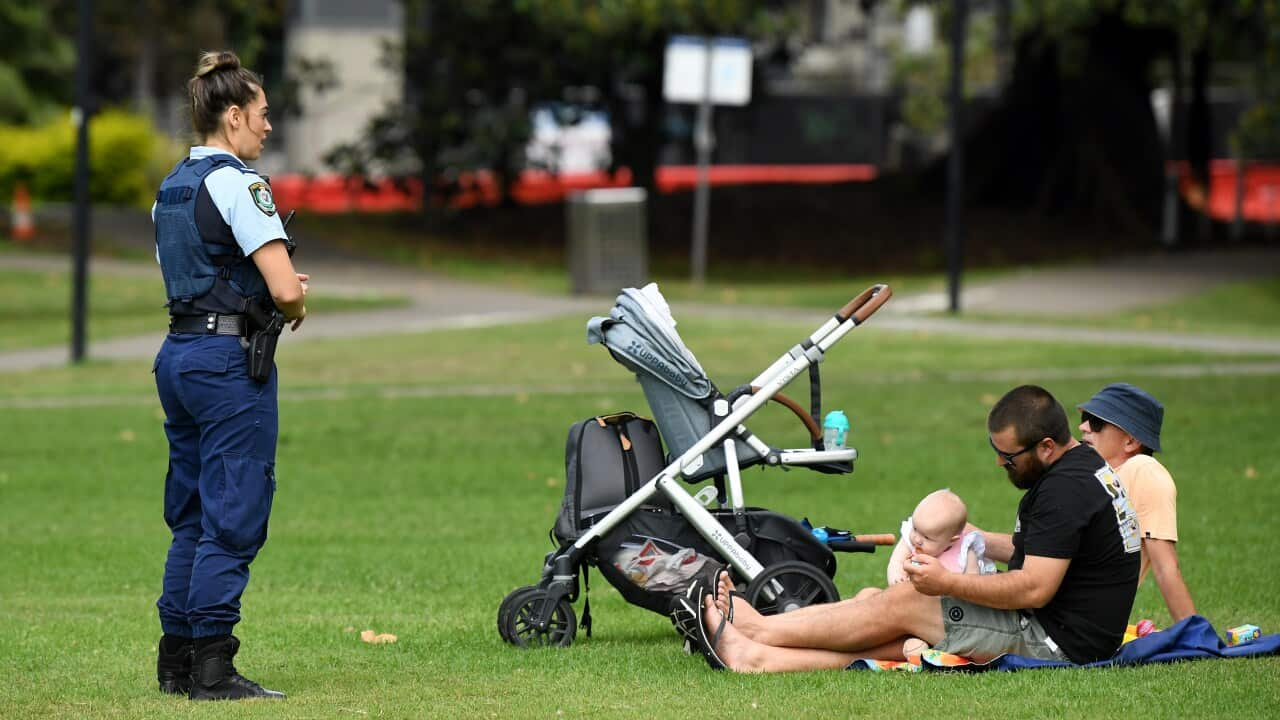The Easter long weekend is upon us, but unfortunately due to coronavirus it won't be the usual Easter break Australians are used to.
While there are early signs that Australia is making some progress in flattening the curve and slowing the spread of COVID-19, strict social distancing rules remain in place.
That's because, as , "progress can be easily undone, as we have seen in other places around the world."
"We are only a few days away from Easter, a time that should give us great hope. The message is clear, though: stay home, don't travel, don't go away. We can't let up now."
If you're wondering that advice means for specific activities you had planned for the long weekend, we'll break that down below.
A word of warning, though: the advice on some specific activities varies from state to state. If in doubt, exercise caution and follow the federal government's advice, which has been texted to all Australians: "Stay home this Easter and help save lives. Only leave for what you really need, plus exercise, work, medical and care."
Can I visit friends or family?
Unfortunately, you cannot hang out with mates or extended family this weekend -- the rules around social distancing have not changed.
To recap, here are those rules. Public gatherings are restricted to a maximum of two people unless you're with your immediate household. Even if you are with your immediate household, you should still only be in public for essential activities, and .
Under certain circumstances, you may be able to visit someone at their home. For instance, . Children in shared custody arrangements can also visit their family.
In some states and territories, it's also acceptable to have one or two guests visit your home. It's important to to determine whether visitors are allowed.
If in doubt, remember that the priority right now is to avoid unnecessary contact and sharing of space. Even if your state or territory does allow visitors, you should consider whether those visitors will need to travel long distances or spend time on public transport, whether you'll be able to maintain good social distancing once they arrive, and whether they are elderly or fall into a high-risk category. If you're not sure, don't risk it.
Can I go to church or religious gatherings?
Do not attend church or religious services this weekend. In fact, if your local place of worship is following the rules, it should be closed.
The federal government advises that "During the Easter period, places of worship must remain closed to the public. Services will be streamed and only clergy and those formally involved in services or streaming are permitted to attend."
The Catholic Archdiocese of Sydney has published a list of . Good Friday and Easter Sunday services at St Mary's Cathedral will also be broadcast on Channel 7.
During the COVID-19 shutdown, some local mosques and synagogues are also conducting prayers and services via livestream or video call. Check the website or social media pages for your local place of worship to find out more.
Can I travel or visit my holiday home?
Don't travel this long weekend. That means everything -- don't head to an Airbnb, don't go for a day trip down the coast, don't drive to the beach.
That advice applies across the country, but it's being more strictly enforced in some states. Campsites, caravan parks and major beaches in several states are closed, while travel bans have been enforced in some areas. Most state borders are closed, and police are patrolling public places.
The Prime Minister's advice this weekend is "stay at home". And if you're lucky enough to own a holiday home, that doesn't necessarily mean you're allowed to use it right now, though advice varies between states.
In NSW, police commissioner Mick Fuller urged people to lock down in their "primary home", as moving between regions risks spreading infection.
He also pointed out that police have received more than 5,000 Crime Stoppers reports from Australians dobbing in neighbours for breaking the rules. No one is safe.
In Victoria, Police Minister Lisa Neville also urged people to stay at home, but pointed out that .
That doesn't necessarily mean you should visit those holiday homes, though. After all, you could still be fined for non-essential travel.
Some of these restrictions may feel especially hard right now, particularly while it appears that Australia's response to the crisis is beginning to work.
But as Minister for Health Greg Hunt put it today, "as we go into Easter with welcome news for Australia, the virus does not take a holiday - therefore none of us can relax."
"This in many ways is the most important weekend we may face in the whole course of the virus."
"If we can lock in the gains that we've made as a nation through the courage and sacrifice of those on the health, medical and policing frontlines, but also through the immense goodwill and discipline of Australians, then we can help really protect Australian lives going forward and give ourselves the pathway through."
People in Australia must stay at least 1.5 metres away from others and gatherings are limited to two people unless you are with your family or household.
If you believe you may have contracted the virus, call your doctor (don't visit) or contact the national Coronavirus Health Information Hotline on 1800 020 080. If you are struggling to breathe or experiencing a medical emergency, call 000.
SBS is committed to informing Australia's diverse communities about the latest COVID-19 developments. News and information is available in 63 languages at .





